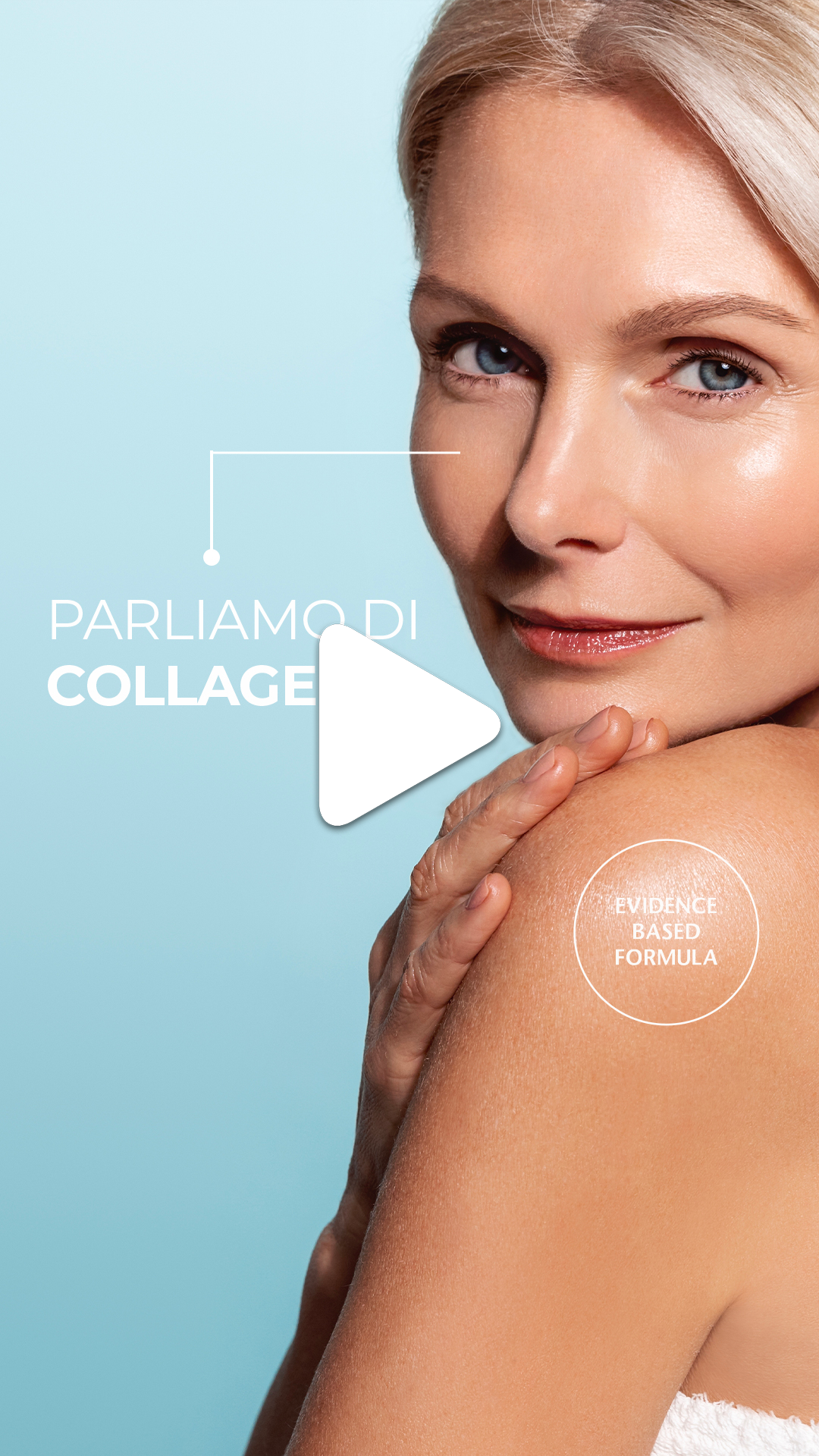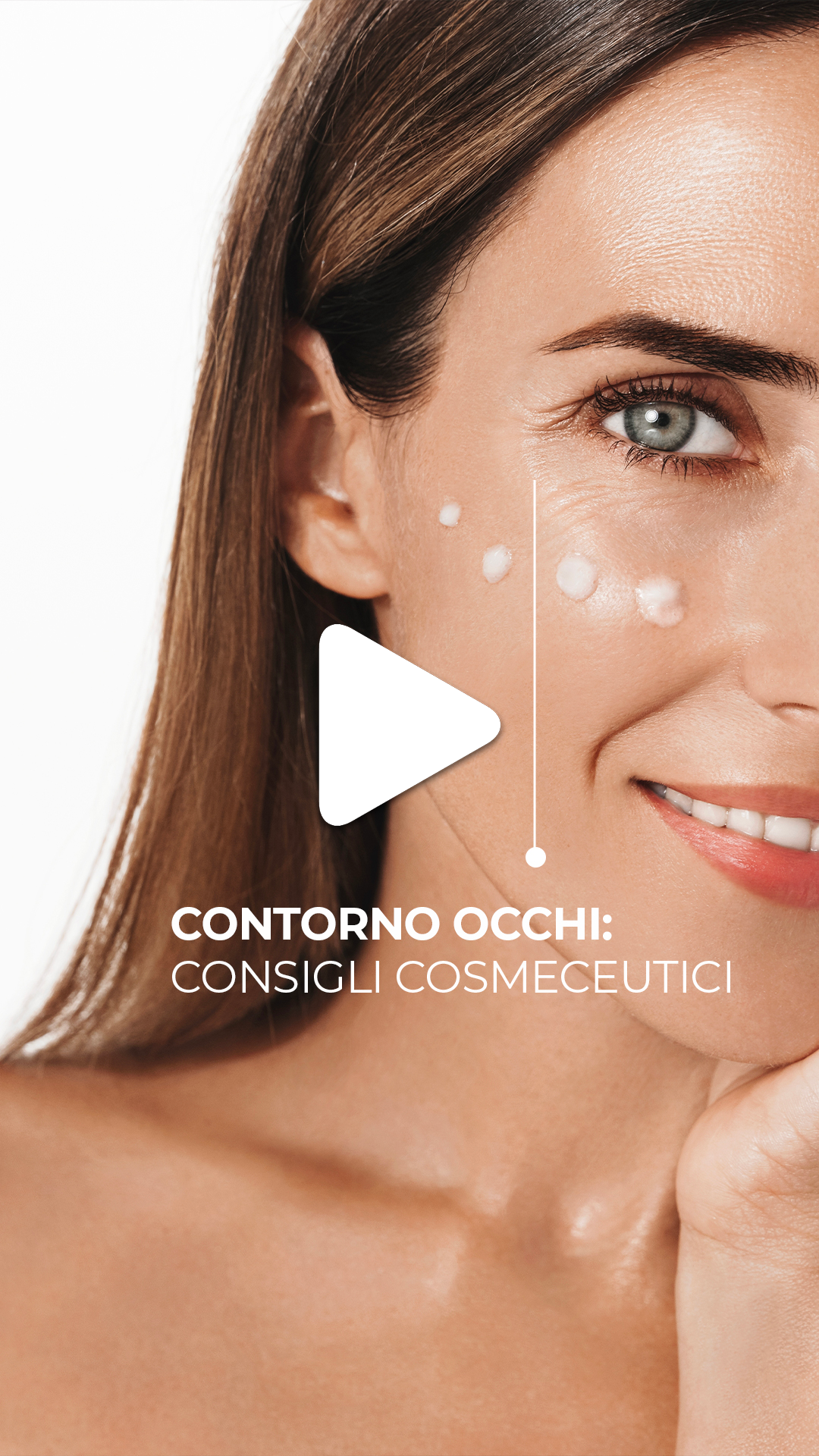1. Mechanical Exfoliation : Uses scrubs or exfoliating devices to physically remove dead cells from the skin's surface. It's helpful for improving radiance, but should be used with caution on mature or sensitive skin to avoid irritation.
2. Chemical Exfoliation : Uses acids such as alpha-hydroxy acids (AHAs, such as glycolic or lactic acid) and beta-hydroxy acids (BHAs, such as salicylic acid) to dissolve the bonds that hold dead cells together. This method is very effective for promoting cell renewal and reducing signs of aging, such as wrinkles and dark spots.
3. Enzymatic Exfoliation : Uses fruit-derived enzymes to gently remove dead skin cells. It's particularly suitable for sensitive skin or those with rosacea, as it's less aggressive than other methods.
BENEFITS OF EXFOLIATION IN ANTIAGING
- Texture Improvement: Regular exfoliation helps maintain a smooth, even skin surface.
- Stimulation of cell renewal : promotes the production of new cells, making the skin fresher and brighter.
- Increased absorption of treatments : exfoliated skin better absorbs the active ingredients of anti-aging products, such as serums and creams.
- Reduction of wrinkles and fine lines : by promoting cell turnover, the signs of aging are visibly reduced.
- Evens out skin tone : Helps lighten dark spots and even out skin tone.
Frequency and Precautions
The frequency of exfoliation depends on your skin type and the type of exfoliant used. Mature or sensitive skin may benefit from less frequent exfoliation (for example, once a week), while other skin types may tolerate more frequent exfoliation. Daily sunscreen use is also essential, as exfoliation can make skin more susceptible to sun damage.
In short, exfoliation is an important ally in the fight against skin aging, but it must be practiced carefully and with products suited to your skin type.
After exfoliation, the skin is more receptive to treatments, as pores are cleaner and the surface is smoother. This is the ideal time to apply products containing vitamins and other beneficial active ingredients. Here are some vitamins that can be particularly effective:
Vitamin C (Ascorbic Acid)
- Benefits: Vitamin C is a powerful antioxidant that helps protect the skin from free radical damage and stimulates collagen production. This can help improve skin elasticity, reduce wrinkles, and lighten dark spots, giving the face a brighter, more even appearance.
- Application: After exfoliating, apply a serum or cream containing vitamin C, preferably in the morning to maximize protection from environmental damage throughout the day.
Vitamin E (Tocopherol)
- Benefits: Vitamin E is another powerful antioxidant that helps protect the skin from oxidative damage. It also has hydrating and soothing properties, making it ideal for dry or irritated skin after exfoliation.
- Application: Often combined with vitamin C in serums, vitamin E can be applied after exfoliation to nourish and protect the skin.
Vitamin A (Retinol)
- Benefits: Retinol is known for its ability to accelerate cell turnover and stimulate collagen production, reducing the appearance of wrinkles and improving skin texture. It is one of the most effective anti-aging ingredients.
- Application: After exfoliating in the evening, retinol can be applied to optimize its effects. However, it's important to start with low concentrations to avoid irritation and always use sunscreen during the day, as retinol can increase sun sensitivity.
Vitamin B3 (Niacinamide)
- Benefits: Niacinamide helps improve the skin's barrier function, reduces inflammation and hyperpigmentation, and has anti-aging properties. It is suitable for all skin types and especially beneficial for those with acne or sensitive skin.
- Application: After exfoliating, apply a serum or cream with niacinamide to calm the skin and improve hydration.
After exfoliation, hydration is essential to restore and maintain skin balance. During exfoliation, by removing dead cells, the skin can lose some of its natural oils, making it more susceptible to dryness and sensitivity. Adequate hydration helps restore the skin barrier, keep skin soft and protected, and enhance the benefits of exfoliation.
Steps to moisturize your skin after exfoliation:
1. Application of hydrating serums :
• Using a serum containing hyaluronic acid, glycerin, or panthenol is a great way to draw moisture into the skin and keep it hydrated. Hyaluronic acid, in particular, is highly effective because it can hold up to 1,000 times its weight in water, making it ideal for dehydrated skin.
- Texture Improvement: Regular exfoliation helps maintain a smooth, even skin surface.
- Stimulation of cell renewal : promotes the production of new cells, making the skin fresher and brighter.
- Increased absorption of treatments : exfoliated skin better absorbs the active ingredients of anti-aging products, such as serums and creams.
- Reduction of wrinkles and fine lines : by promoting cell turnover, the signs of aging are visibly reduced.
- Evens out skin tone : Helps lighten dark spots and even out skin tone.
Frequency and Precautions
The frequency of exfoliation depends on your skin type and the type of exfoliant used. Mature or sensitive skin may benefit from less frequent exfoliation (for example, once a week), while other skin types may tolerate more frequent exfoliation. Daily sunscreen use is also essential, as exfoliation can make skin more susceptible to sun damage.
In short, exfoliation is an important ally in the fight against skin aging, but it must be practiced carefully and with products suited to your skin type.
Step 2
After exfoliation, the skin is more receptive to treatments, as pores are cleaner and the surface is smoother. This is the ideal time to apply products containing vitamins and other beneficial active ingredients. Here are some vitamins that can be particularly effective:
Vitamin C (Ascorbic Acid)
- Benefits: Vitamin C is a powerful antioxidant that helps protect the skin from free radical damage and stimulates collagen production. This can help improve skin elasticity, reduce wrinkles, and lighten dark spots, giving the face a brighter, more even appearance.
- Application: After exfoliating, apply a serum or cream containing vitamin C, preferably in the morning to maximize protection from environmental damage throughout the day.
Vitamin E (Tocopherol)
- Benefits: Vitamin E is another powerful antioxidant that helps protect the skin from oxidative damage. It also has hydrating and soothing properties, making it ideal for dry or irritated skin after exfoliation.
- Application: Often combined with vitamin C in serums, vitamin E can be applied after exfoliation to nourish and protect the skin.
Vitamin A (Retinol)
- Benefits: Retinol is known for its ability to accelerate cell turnover and stimulate collagen production, reducing the appearance of wrinkles and improving skin texture. It is one of the most effective anti-aging ingredients.
- Application: After exfoliating in the evening, retinol can be applied to optimize its effects. However, it's important to start with low concentrations to avoid irritation and always use sunscreen during the day, as retinol can increase sun sensitivity.
Vitamin B3 (Niacinamide)
- Benefits: Niacinamide helps improve the skin's barrier function, reduces inflammation and hyperpigmentation, and has anti-aging properties. It is suitable for all skin types and especially beneficial for those with acne or sensitive skin.
- Application: After exfoliating, apply a serum or cream with niacinamide to calm the skin and improve hydration.
Step 3
After exfoliation, hydration is essential to restore and maintain skin balance. During exfoliation, by removing dead cells, the skin can lose some of its natural oils, making it more susceptible to dryness and sensitivity. Adequate hydration helps restore the skin barrier, keep skin soft and protected, and enhance the benefits of exfoliation.
Steps to moisturize your skin after exfoliation:
1. Application of hydrating serums :
• Using a serum containing hyaluronic acid, glycerin, or panthenol is a great way to draw moisture into the skin and keep it hydrated. Hyaluronic acid, in particular, is highly effective because it can hold up to 1,000 times its weight in water, making it ideal for dehydrated skin.
2 Rich Moisturizing Cream :
• Choose a moisturizer that contains emollients (such as shea butter, ceramides) and occlusives (such as natural oils, squalane) to seal moisture into the skin and prevent transepidermal water loss. A richer cream is especially suitable for dry or mature skin.
• Choose a moisturizer that contains emollients (such as shea butter, ceramides) and occlusives (such as natural oils, squalane) to seal moisture into the skin and prevent transepidermal water loss. A richer cream is especially suitable for dry or mature skin.
3. Use of hydrating masks :
• After exfoliation, a hydrating mask can be very beneficial. Sheet masks or gel masks with ingredients like aloe vera, hyaluronic acid, or colloidal oatmeal offer intense hydration and can calm any redness.
• After exfoliation, a hydrating mask can be very beneficial. Sheet masks or gel masks with ingredients like aloe vera, hyaluronic acid, or colloidal oatmeal offer intense hydration and can calm any redness.
4. Nighttime hydration :
• Night is the time when the skin regenerates most, so using a nourishing night cream or facial oil can help support this process, ensuring long-lasting hydration.
• Night is the time when the skin regenerates most, so using a nourishing night cream or facial oil can help support this process, ensuring long-lasting hydration.
Additional tips:
• Avoid irritating products: Immediately after exfoliating, it's best to avoid products with alcohol, strong perfumes, or other potential irritants that could cause dryness or irritation.
• Sunscreen: If you exfoliated during the day, it's essential to apply sunscreen, as your skin may be more sensitive to UV damage after exfoliation.
• Drink water: Internal hydration is equally important. Make sure you drink enough water throughout the day to keep your skin well-hydrated from within.
Hydration after exfoliation is therefore crucial to keeping skin balanced, protected, and radiant, enhancing the benefits of the exfoliating treatment.
• Avoid irritating products: Immediately after exfoliating, it's best to avoid products with alcohol, strong perfumes, or other potential irritants that could cause dryness or irritation.
• Sunscreen: If you exfoliated during the day, it's essential to apply sunscreen, as your skin may be more sensitive to UV damage after exfoliation.
• Drink water: Internal hydration is equally important. Make sure you drink enough water throughout the day to keep your skin well-hydrated from within.
Hydration after exfoliation is therefore crucial to keeping skin balanced, protected, and radiant, enhancing the benefits of the exfoliating treatment.






